Canadian Prime Minister Justin Trudeau announced a $30-billion immediate tariff package and a $125-billion package in 21 days in response to US President Donald Trump's tariffs on Canada. The Canadian government will target American products in several sectors, including alcohol, furniture, and natural resources. Canadians are also taking action, cancelling US subscriptions and promoting Canadian-made goods. While some provinces, particularly Alberta, are hesitant about retaliating against energy imports, Trudeau remains committed to protecting the Canadian economy.
The Canadian government is preparing to unveil its retaliatory tariffs on Sunday, a day after U.S. President Donald Trump unexpectedly ignited a trade war by imposing significant duties on Canadian goods. Trump's executive orders, signed on Saturday evening, impose a 10 percent tariff on Canadian energy products and a 25 percent tariff on all other imports.
In response, Prime Minister Justin Trudeau announced that Canada would retaliate with an immediate $30-billion tariff package targeting American products, followed by an additional $125 billion in duties on American imports within 21 days. This period is intended to give businesses and supply chains time to explore alternative sources. The retaliatory tariffs will focus on sectors such as alcohol, furniture, and natural resources. Specific details of the Canadian tariffs will be released on Sunday afternoon. Meanwhile, many Canadians are taking matters into their own hands, expressing their support for Canadian businesses through social media. They are canceling subscriptions to American streaming services, vowing to avoid traveling to the United States, and actively sharing lists of Canadian-made products to encourage a boycott of American brands. This sentiment is echoed by provincial premiers and other politicians who are actively promoting the buy-Canadian initiative. Chrystia Freeland, a Liberal leadership candidate and former finance minister, urged Canadians to 'try your best not to buy products made in the United States.' When questioned about the possibility of Canada cutting off energy supplies to the U.S. as a retaliatory measure, Trudeau remained non-committal, stating that any actions involving regional disparities would be carefully considered in full partnership with regional leaders. Alberta Premier Danielle Smith has expressed strong opposition to any retaliatory measures that could impact her province's oil and gas industry. Trudeau reiterated his belief that the most beneficial outcome for both countries would be to avoid tariffs altogether. He stated, 'If President Trump wants to usher in a new golden age for the United States, the better path is to partner with Canada, not to punish us.' Trump, however, continued his claims that the U.S. subsidizes Canada, taking to social media on Sunday morning to reiterate his desire for Canada to become 'our cherished 51st state' as a way to avoid tariffs. He asserted, 'We don’t need anything they have. We have unlimited energy, should make our own cars, and have more lumber than we can ever use. Without this massive subsidy, Canada ceases to exist as a viable country.' Trump linked the tariffs to the issue of fentanyl crossing the border, and included a clause that allows for an escalation of tariffs if Canada responds with duties on American products. U.S. Customs and Border Protection statistics indicate that less than one percent of all fentanyl seized originates from the northern border. Provincial leaders, while acknowledging the significant challenge posed by this trade dispute, largely echoed Trudeau's message of protecting the Canadian economy and its relationship with its southern neighbor. The new trade penalties have the potential to disrupt the Canadian economy and contribute to American inflation, contradicting Trump's campaign promise of making life more affordable for U.S. citizens. Despite this, Trump has downplayed the impact of the tariffs on American consumers, stating that 'there could be some temporary short-term disruption,' but adding, 'people will understand that.' The U.S. Chamber of Commerce expressed concerns that the tariffs would 'only raise prices for American families and upend supply chains.
CANADA UNITED STATES DONALD TRUMP JUSTIN TRUDEAU TARIFFS TRADE WAR ECONOMY
Canada Latest News, Canada Headlines
Similar News:You can also read news stories similar to this one that we have collected from other news sources.
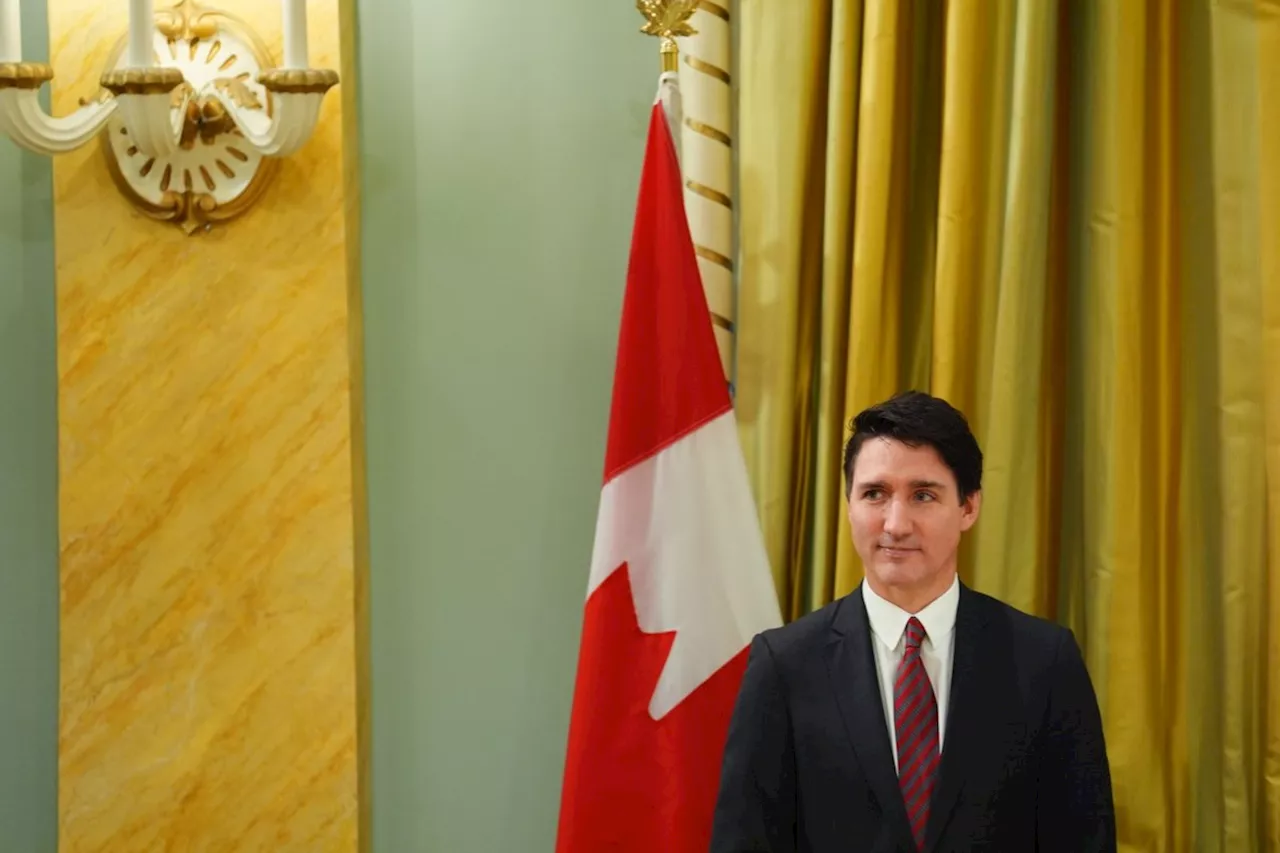 Canadian News Roundup: Trudeau's Departure, Trump's Threats, and Trudeau's Lost Cool FactorThis news roundup covers key Canadian stories, including the Liberal party's leadership race after Justin Trudeau's resignation, Donald Trump's threats of economic force against Canada, and the changing public perception of Trudeau's cool factor.
Canadian News Roundup: Trudeau's Departure, Trump's Threats, and Trudeau's Lost Cool FactorThis news roundup covers key Canadian stories, including the Liberal party's leadership race after Justin Trudeau's resignation, Donald Trump's threats of economic force against Canada, and the changing public perception of Trudeau's cool factor.
Read more »
 Trudeau Rejects Trump's Idea of Canada Joining USPrime Minister Justin Trudeau strongly refuted U.S. President-elect Donald Trump's suggestion that Canada should become a U.S. state. Trudeau stated that there's 'no chance' of Canada joining the U.S., marking his most assertive response to Trump's repeated claims. Trump, during a press conference, reiterated his stance on making Canada a U.S. state and stated that the U.S. doesn't need anything Canada trades with, despite Canada being the U.S.'s biggest trading partner.
Trudeau Rejects Trump's Idea of Canada Joining USPrime Minister Justin Trudeau strongly refuted U.S. President-elect Donald Trump's suggestion that Canada should become a U.S. state. Trudeau stated that there's 'no chance' of Canada joining the U.S., marking his most assertive response to Trump's repeated claims. Trump, during a press conference, reiterated his stance on making Canada a U.S. state and stated that the U.S. doesn't need anything Canada trades with, despite Canada being the U.S.'s biggest trading partner.
Read more »
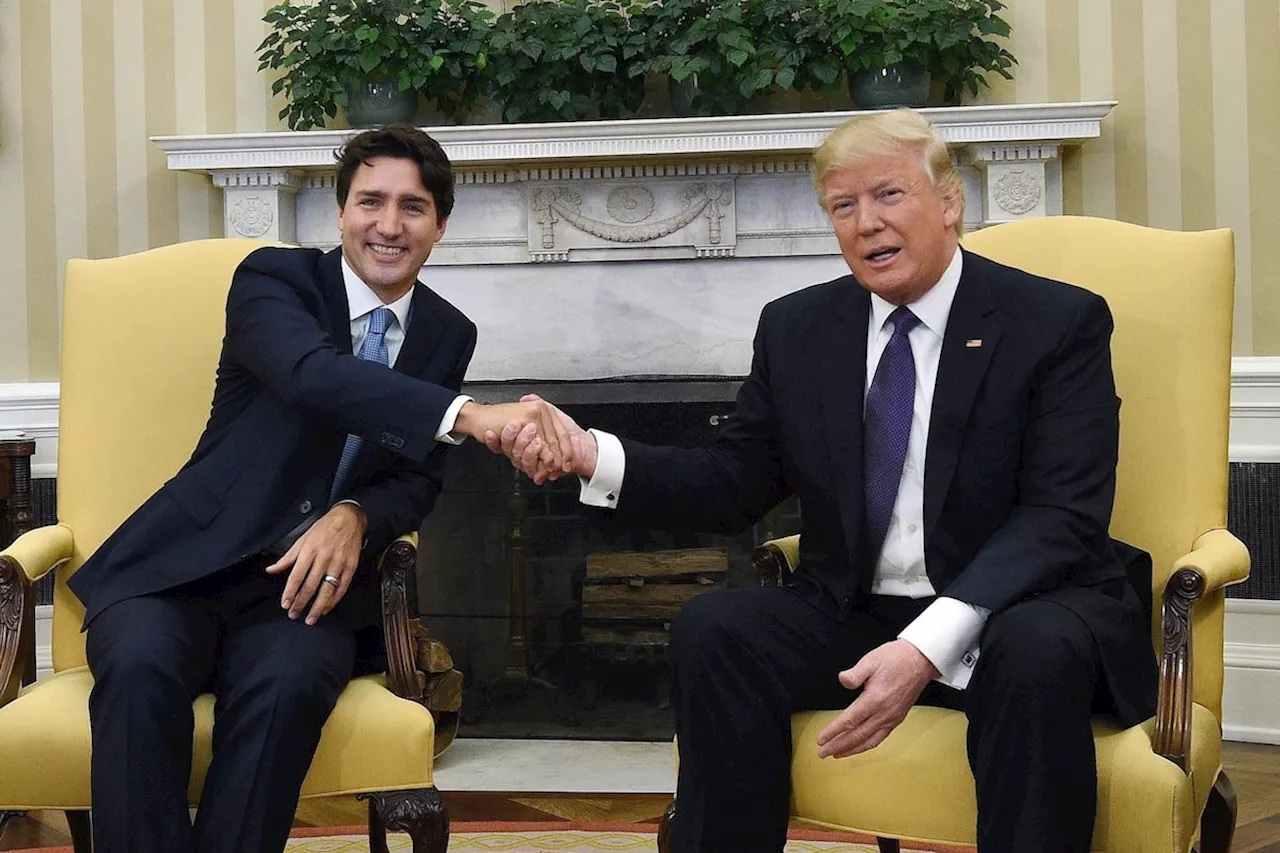 Trump Claims Credit for Trudeau's Resignation, Proposes Canadian AnnexationFormer U.S. President Donald Trump attributes Canadian Prime Minister Justin Trudeau's resignation to his stance on trade imbalances and suggests Canada should join the U.S. He cites economic benefits and security against Russia and China as reasons for annexation, despite a recent poll showing strong opposition among Canadians.
Trump Claims Credit for Trudeau's Resignation, Proposes Canadian AnnexationFormer U.S. President Donald Trump attributes Canadian Prime Minister Justin Trudeau's resignation to his stance on trade imbalances and suggests Canada should join the U.S. He cites economic benefits and security against Russia and China as reasons for annexation, despite a recent poll showing strong opposition among Canadians.
Read more »
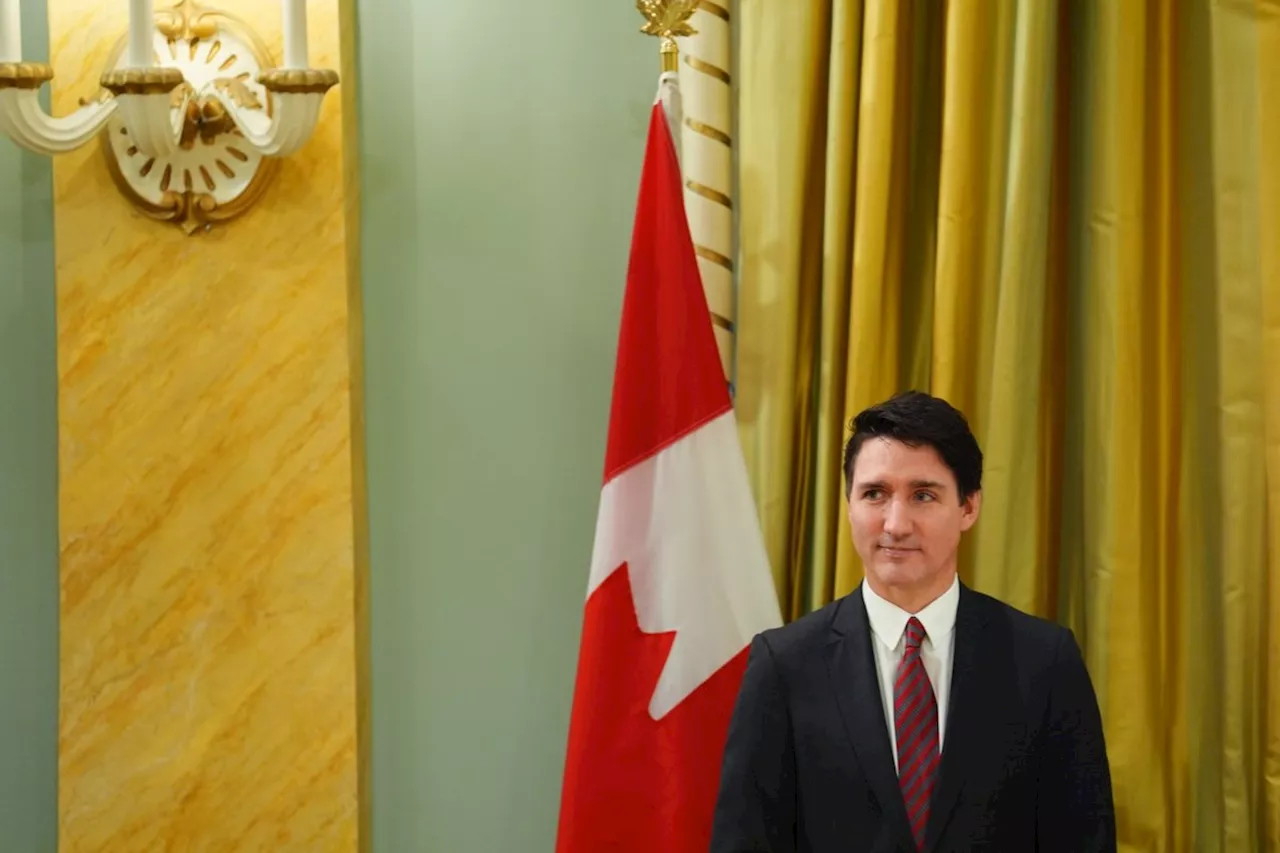 Canadian News Roundup: Liberals Huddle, Trump's Threats, Trudeau's Lost CoolThis news roundup covers three key stories: Liberal MPs meet to discuss leadership after Trudeau's resignation announcement, Donald Trump's threats to use economic force against Canada spark concern, and a look at how Justin Trudeau's perceived coolness has waned.
Canadian News Roundup: Liberals Huddle, Trump's Threats, Trudeau's Lost CoolThis news roundup covers three key stories: Liberal MPs meet to discuss leadership after Trudeau's resignation announcement, Donald Trump's threats to use economic force against Canada spark concern, and a look at how Justin Trudeau's perceived coolness has waned.
Read more »
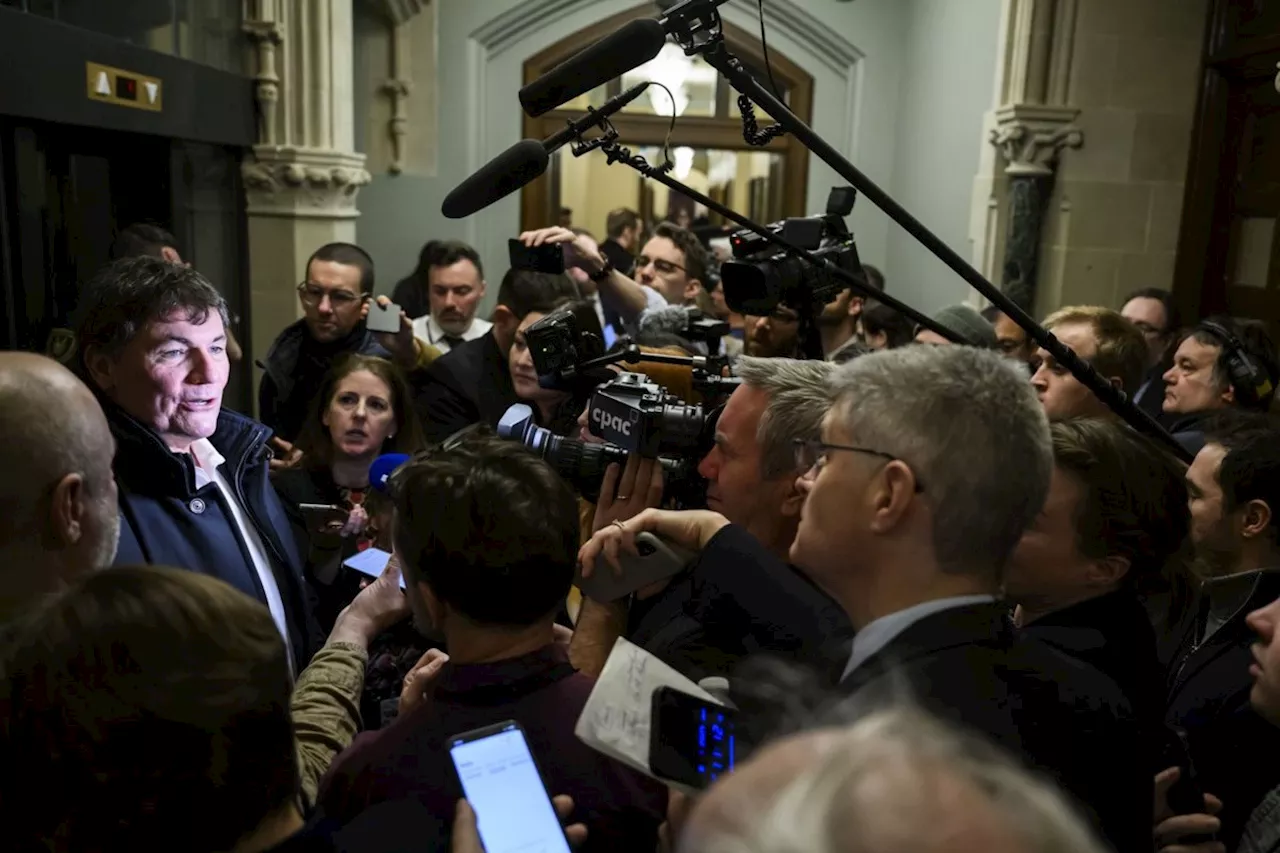 Canadian Premiers to Meet with Trudeau to Discuss Trump Tariff ThreatsCanadian Prime Minister Justin Trudeau and the country's premiers will gather in Ottawa to devise a strategy against potential tariffs from the incoming U.S. administration of Donald Trump.
Canadian Premiers to Meet with Trudeau to Discuss Trump Tariff ThreatsCanadian Prime Minister Justin Trudeau and the country's premiers will gather in Ottawa to devise a strategy against potential tariffs from the incoming U.S. administration of Donald Trump.
Read more »
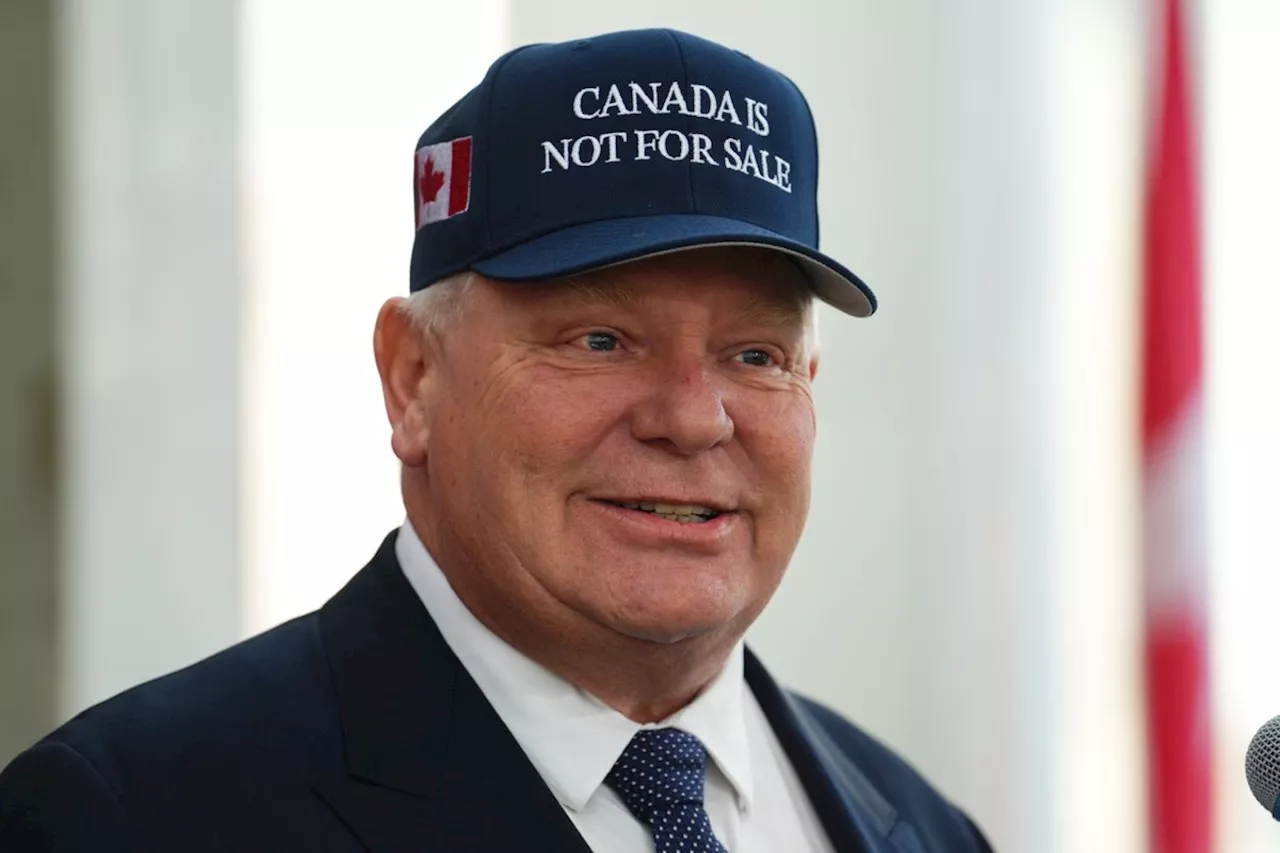 Canadian Premiers Meet with Trudeau to Discuss Trump's TariffsCanadian premiers gathered in Ottawa to discuss a response to U.S. president-elect Donald Trump's threat to impose tariffs on Canadian goods. While united in standing up for the national interest, premiers expressed differing views on how to respond, with some advocating for retaliatory tariffs and others suggesting a more measured approach. The meeting focused on the potential economic impact of the tariffs and the importance of addressing the issues of drug trafficking and border security raised by the incoming Trump administration.
Canadian Premiers Meet with Trudeau to Discuss Trump's TariffsCanadian premiers gathered in Ottawa to discuss a response to U.S. president-elect Donald Trump's threat to impose tariffs on Canadian goods. While united in standing up for the national interest, premiers expressed differing views on how to respond, with some advocating for retaliatory tariffs and others suggesting a more measured approach. The meeting focused on the potential economic impact of the tariffs and the importance of addressing the issues of drug trafficking and border security raised by the incoming Trump administration.
Read more »
